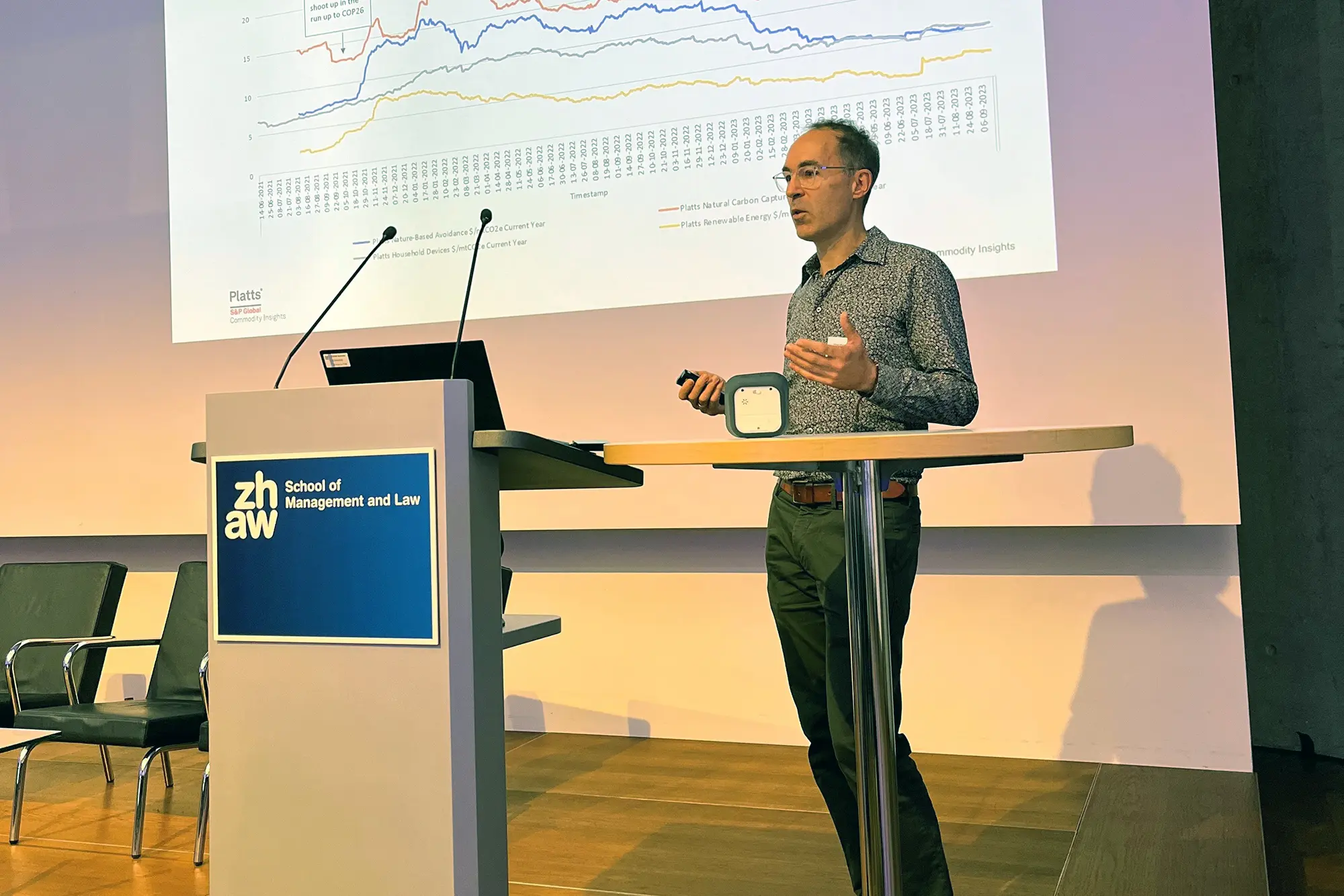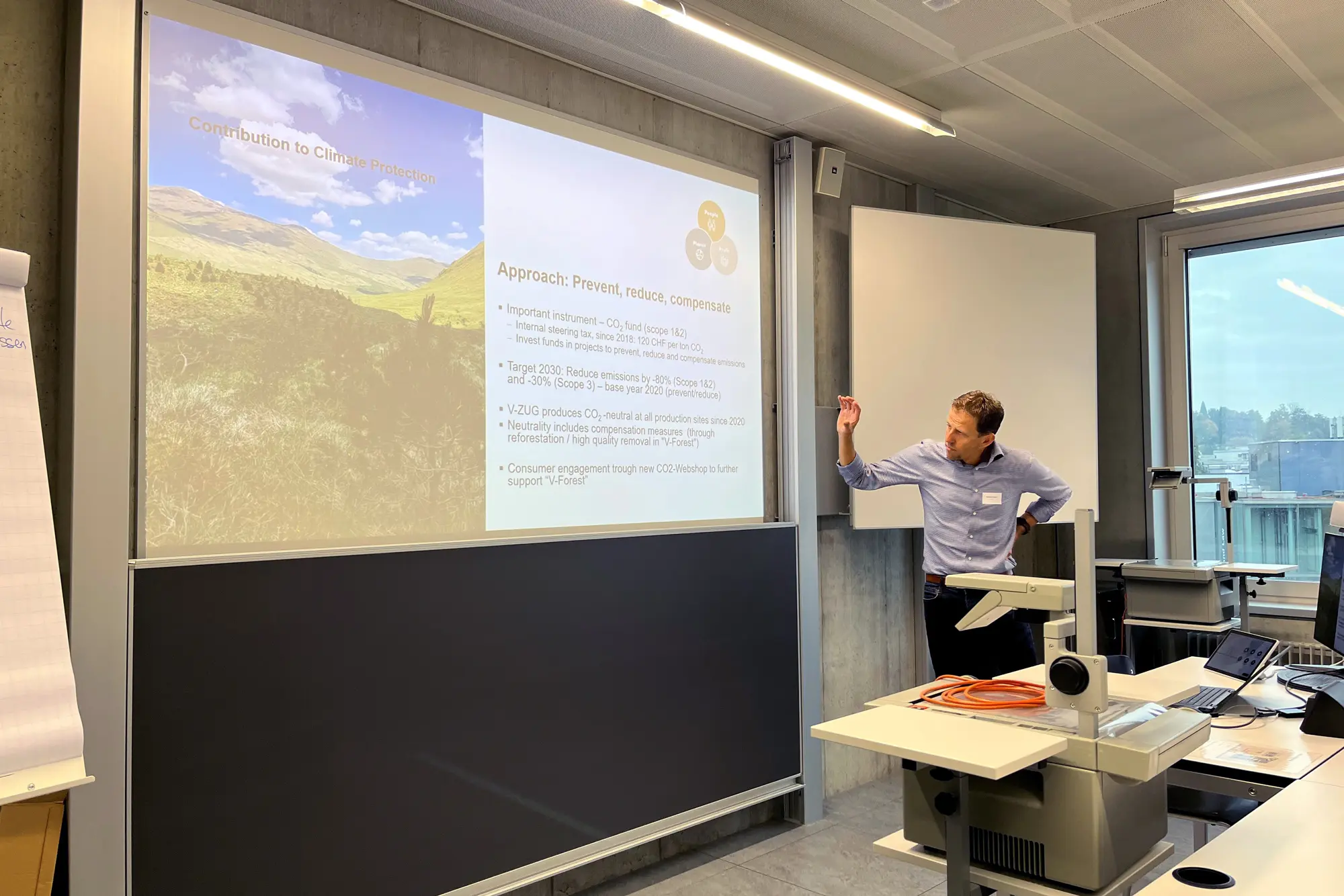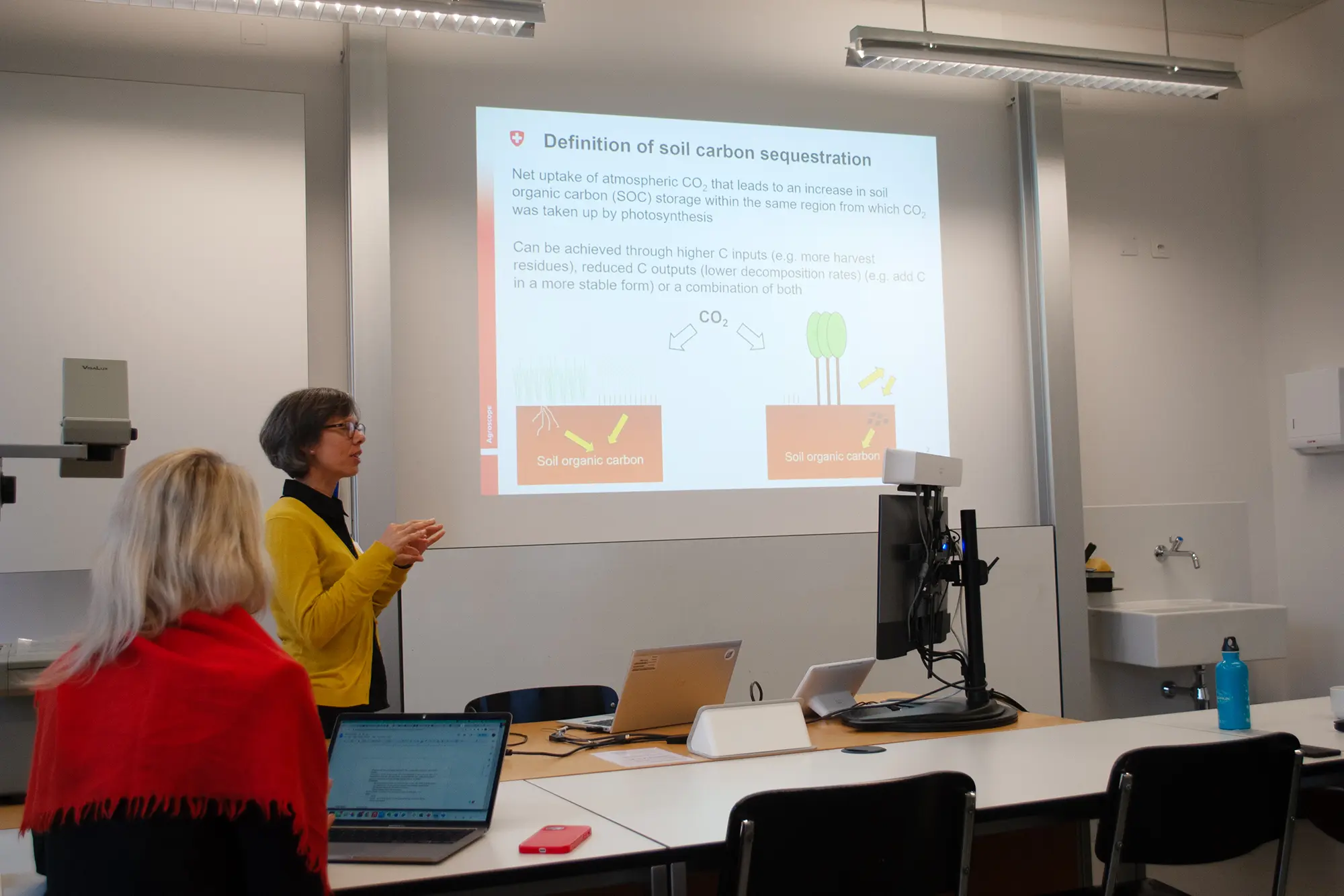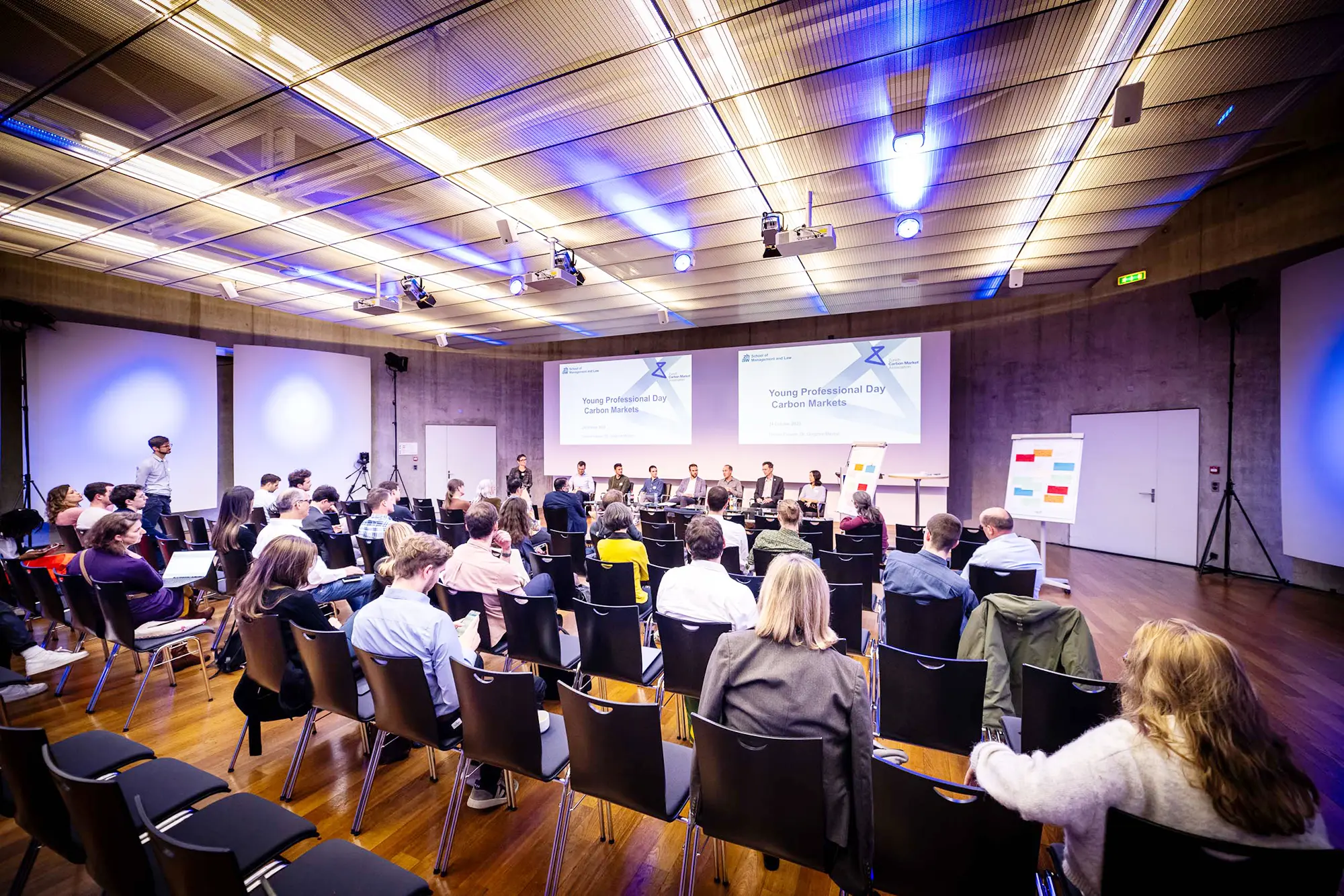Young Professionals Day 2023
On 24 October 2023, the first Young Professionals Day (YPD) took place at the ZHAW School of Management and Law (SML). Carbon market experts from Switzerland’s academia, business, and public sectors met and exchanged with students, early career researchers, and young professionals on essential topics related to UN Sustainability Development Goal 13 on climate action.
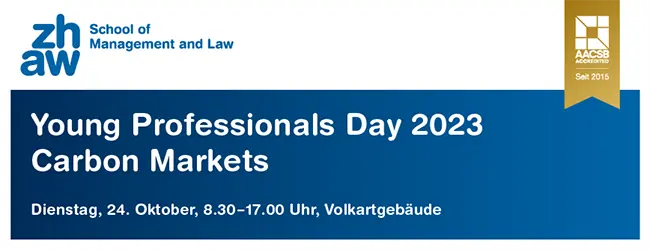
Twenty-one experts/moderators from academia, business, and the public sector (mainly federal administration)
Thirty-eight participants (students, early career researchers, and young professionals in the private sector)
One introductory plenary session
Carbon markets are playing an increasingly important role in the global fight against climate change. They are used as an instrument to finance climate protection and so reduce greenhouse gas emissions. Following the Swiss Climate and Innovation Act vote on 18 June 2023, this topic has become more critical than ever, especially in Switzerland. In cooperation with the Zurich Carbon Market Association (ZCMA), the SML organized the first YPD on this stimulating and relevant topic. The day aimed to raise awareness of carbon markets and support young professionals embarking on a career involving carbon markets. Participants could take part in workshops, talks, and a panel discussion followed by a networking reception.
During the introductory plenary session, Mischa Classen (classen Zürich/ZCMA) presented today’s carbon markets – the so-called compliance and voluntary carbon markets – and their key players. He emphasized the Paris Climate Agreement as a driver of future carbon markets and the importance of bilateral agreements (Article 6.4). He focused on moving away from the Kyoto Protocol era, which was dominated by the EU Emissions Trading System and the UN Clean Development Mechanism.
Seven thematic workshops
Following the introductory panel session, participants could attend workshops covering the most important facets of carbon markets, with guidance and input from industry experts.
- The Swiss Compliance Market. Raphael Bucher (Swiss Federal Office of the Environment), Philippe Goffin (Energie-Agentur), and Thomas Richner (Holcim) offered insights into the instruments of the Swiss CO2 Act, the European Union’s Emissions Trading System, and the target agreements. Participants could get a real sense of Switzerland’s climate policy. The workshop was led by Denise Fussen (EBP/ZCMA).
- International Agreements. Prof. Regina Betz (ZHAW SML/ZCMA) and Axel Michaelowa (University of Zurich/Perspectives) addressed the international mechanisms that support greenhouse gas reductions and how they should be designed to remain credible and effective. They also outlined key principles for a good carbon credit. The workshop was led by Regina Betz.
- Swiss Commitments at an International Level. How does Switzerland ensure its international commitment to climate protection with projects outside the country? Jacqueline Jakob (KliK Foundation) and Mischa Classen (classen Zürich/ZCMA) analyzed Paris Agreement Article 6.2, covering bilateral agreements and purchases of emission reductions abroad. The workshop was led by Mischa Classen.
- The Voluntary Market. Yves Keller (First Climate/ZCMA) presented the voluntary market players and demonstrated how to develop climate protection projects for this sector. He explained how the market context has changed from the Kyoto Protocol to the Paris Agreement.
- Carbon Markets in Business. In this workshop, participants gain first-hand insights into how companies across different industries implement internal incentives to reduce their carbon footprint. Christian Etter (Migros Genossenschaftsbund), Thomas Spencer (Swiss Re), and Marcel Niederberger (V-Zug) presented their solutions and experiences. The workshop was led by Grégoire Meylan, (ZHAW SML/ZCMA).
- Development in the Carbon Market. This workshop focused on carbon dioxide removal technologies and business models. Mischa Repmann (Swiss Re) showed how companies can achieve carbon removal through readily available, natural solutions. Björn Niesen (EMPA Federal Laboratories for Materials Science and Technology) gave an overview of the most important carbon dioxide removal technologies. Sonja Keel from Agroscope - the Swiss center of excellence for agricultural research – then explored the world of biochar and its application to agriculture for storing carbon in soils. The workshop was led by Leila Toplic (Carbonfuture/ZCMA).
- Climate Reporting. From 2024 onwards, large companies will be required to carry out climate reporting. What does this mean for companies, and what are their first impressions? Katja Brunner (Swiss Sustainable Finance) presented guidance and best practices in the Swiss context. The workshop was led by Dominik Boos (ZHAW SML/ZCMA).
One panel discussion and a closing keynote speech
YPD 2023 concluded with a panel discussion of experts and workshop participants, sharing key findings from those sessions. Severin Marty (SCNAT, Swiss Academy of Sciences) took a step back in his keynote speech and reflected on communicating climate change to the broader public. He offered his audience some tips and tricks from knowledge to action. Before and after the closing session, students and young professionals had plenty of time to network and share ideas.
